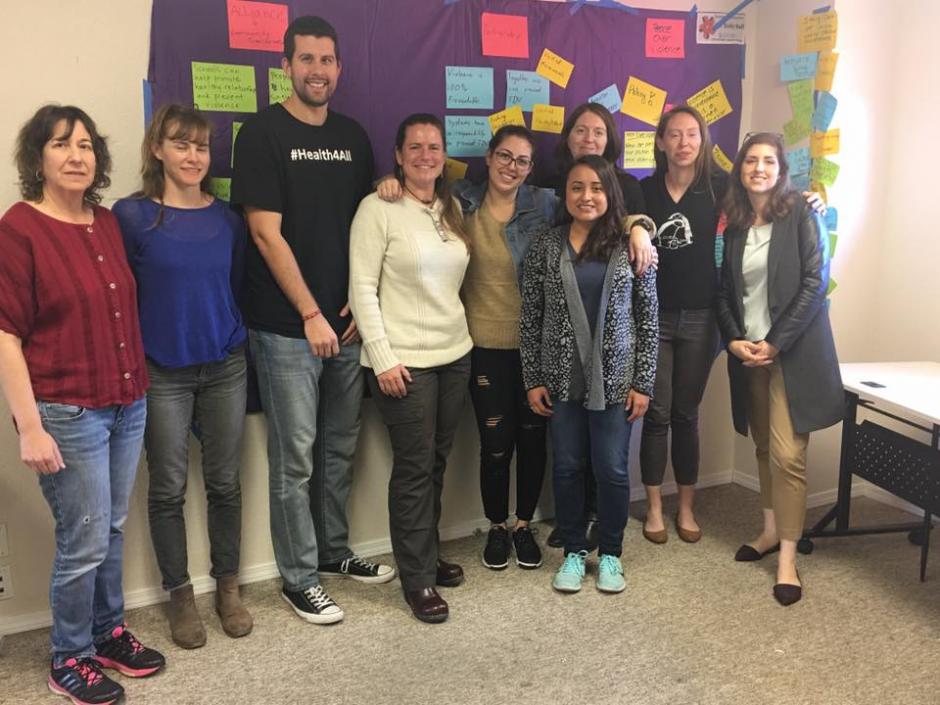Prevention Policy

Adolescent dating abuse affects one in four youth each year. This type of trauma has long-term consequences for students’ well-being, safety, and academic performance. At the California Partnership to End Domestic Violence (the Partnership), we believe youth deserve better—and that laying a foundation for healthy relationships at this crucial time will result in a future free from domestic violence.
Schools have an important responsibility to give students the skills they need to succeed in the classroom and in life. In order to enact meaningful change at the institutional level, we’re promoting school policies and institutional practices which support healthy relationships and prevent adolescent dating abuse.
Advocacy Video and Infographic:
The Partnership’s Your Campus Can Be Ready, explainer video and infographic illustrate schools’ critical role in healthy relationship development exactly how this is possible. As you learn more about Casey and Taylor, the young couple featured, you’ll see how schools can effectively intervene in abusive behavior with policies in place. They can change the course of young lives and open up brighter possibilities for educational success, higher education, and careers.
What Is DELTA FOCUS?
Our DELTA FOCUS prevention policy project was a 5-year initiative funded by the U.S. Centers for Disease Control and Prevention (CDC). California was selected as one of 10 states funded through the CDC to work on the primary prevention of domestic violence.
The three core components of our adolescent dating abuse school policy project included:
Building Coalitions
 Adolescent dating abuse affects entire communities–and that’s why we created a broad coalition of education, youth development, health, and dating abuse experts as we advance our prevention work. We brought together a to provide guidance as we plan, implement, and evaluate our collective work to end adolescent dating abuse.
Adolescent dating abuse affects entire communities–and that’s why we created a broad coalition of education, youth development, health, and dating abuse experts as we advance our prevention work. We brought together a to provide guidance as we plan, implement, and evaluate our collective work to end adolescent dating abuse.
Informing Policy
When schools recognize the importance of addressing adolescent dating abuse, they need the information and tools to implement local policy change. Working with our Leadership Team, the Partnership developed a range of policy resources for school boards and education leaders, school site personnel, and other school-based organizations. These include:
- Policy Recommendations for Schools to Prevent Adolescent Dating Abuse
- Creating Healthy School Climates That Address Adolescent Dating Abuse
- Promoting Healthy Relationships for Adolescents: Board Policy Considerations–a joint brief with the California School Boards Association
- Addressing Bullying and Adolescent Dating Abuse: Supporting Healthy Relationships in Schools
Click here to learn more about The California Healthy Youth Act and helpful information for School Boards and educators.
Two demonstration projects implemented and evaluated prevention policy strategies and core components at the community level:
- Peace Over Violence with the Coalition for Healthy Teen Relationships in Los Angeles, CA
- Alliance for Community Transformations with the Mariposa Abuse Prevention Council in Mariposa, CA
Strategic Communications
We recognize that messages matter, and effectively communicating about adolescent dating abuse and the role of schools is essential to creating change and promoting protective factors for youth. We worked to develop strong frames and messages that resonate with policymakers and increase the number of articles on the topic in traditional media and targeted education publications. (Read a great example here!) We also communicated about adolescent dating abuse through social media and the Partnership’s Prevention Newsletter, expanding our reach to diverse audiences.
- Our messaging focuses on four essential components (click here for our messaging guide):
- Students can’t learn if they’re hurting or don’t feel safe;
- Schools have a responsibility to give students the skills they need to succeed in the classroom and in life;
- Healthy relationships are the foundation for a strong and healthy community;
- Together, with support from community member, domestic violence advocates and school leadership, we can prevent teen dating violence.
Want to Make a Difference with Schools in Your Community?
- Use our interactive map to find your local domestic violence program and learn about their efforts to prevent adolescent dating abuse. Support their work!
- Use our sample email to contact your community’s school board members:
-
Dear School Board Members,
I am writing to express my concern about the impact that teen dating violence is having in our local schools. Healthy relationship skills developed during adolescence form the foundation for a lifetime of safe and respectful relationships. Unfortunately, adolescent dating abuse is all too common among students and on our school grounds. Across the United States, nearly one in three teens ages 14 to 20 have experienced dating abuse and about the same number say they have committed dating abuse themselves.
Dating abuse incidents threaten the safety of students and staff, distract students from learning and compromise the school climate. A safe school environment—where students are not distracted by fear or disengaged from learning because of verbal, physical, emotional, sexual or technological abuse—is essential for student achievement and a positive school climate.
Please consider adopting these recommendations from the California Partnership to End Domestic Violence.
I look forward to hearing which actions you plan to take.
-




